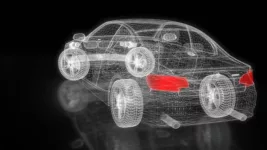One of the most advanced public AI efforts is focused on the creation of Autonomous Cars. This week Intel had an analyst event where they brought together their experts to discuss several strategic initiatives. One of the largest is their Autonomous Car effort. This effort isn’t just about cars. It will likely form the foundation for autonomous robots and other systems to interact autonomously with the world. I think it is far more significant, not just concerning Intel, but concerning our collective future than most realize.
There is a big issue that most of the industry seems to be ignoring, and that is that a critical mass of potential car buyers don’t trust the technology and are unlikely to buy or use it. Intel isn’t like most and feels strongly that the push should make the technology safe and put the related risks in perspective. This result is so that the first expected Autonomous Car accidents don’t result in either a ban or a refusal to buy the technology, either of which would set back the deployment years.
On the call was Marjory Blumenthal from the Rand Corporation and one of those doing the core research on the topic. Jack Weast, one of the top executives out of Intel’s Mobileye Autonomous Car division.
The Need For Perspective
In the first year of autonomous cars, 1,000 people lose their lives due to system failures. I pulled that number out of thin air, but there are currently around 36K people killed in automobile accidents a year now, so taking that down to 1,000 would seem reasonable, but it could also be way low. Given that autonomous cars are designed to prevent more than 90% of automotive deaths, that would still leave around 3.6K people dying from cars, and autonomous cars at that, a year.
So if you were to read a headline that said 3,600 people died in autonomous cars, you’d likely feel that isn’t the technology for you. But if you instead realized that without autonomous cars, that number would be closer to 36K, your perspective would likely change a lot. However, we tend to look at the risk with anything new in a vacuum, not as a comparative. For instance, electric cars in general and Tesla’s, in particular, are generally safer than gas-powered cars but, whenever one wreck, because they are different, they tend to be top of the news. At the same time, the thousands of people who die every day in gas cars are not. I know this genuinely aggravates Elon Musk because it is inherently unfair; he exceeds most other cars’ safety requirements significantly. His company gets pounded for every failure and gets almost no ink because his cars are a little like tanks. They even broke the Consumer Reports tests one year. (Granted, Tesla has other issues).
While not calling out Tesla by name, there is an industry concern that Tesla is over-promising on its decent level 2+ system, which lags GM’s offering and isn’t yet Level 3 (autonomous freeway) or Level 4 (autonomous city) capable. Implying your system is more advanced than it will result in avoidable accidents and deaths, potentially raising even more concerns about these systems and significantly setting back the effort.
Wrapping Up:
People aren’t yet convinced that autonomous driving systems are for them and have legitimate concerns about their safety, liability, and reliability. They also have issues giving up driving control to a computer. Autonomous driving could save tens of thousands of lives in the US and hundreds of thousands of lives worldwide. However, if these systems aren’t put in perspective, any problems with them will be overblown, and the life-saving potential could be significantly reduced. Also, over-promising on any autonomous driving system could lead to avoidable accidents and further degradation of consumer confidence, making it harder to drive adoption and push back the solution’s life-saving potential.
In the end, Intel is correct that the problem isn’t the technology that is advancing at impressive speeds but the impression of the technology which has little connection to reality. Correcting this impression problem will have a lot to do with how quickly we can significantly reduce the massive numbers of lives lost to cars.








